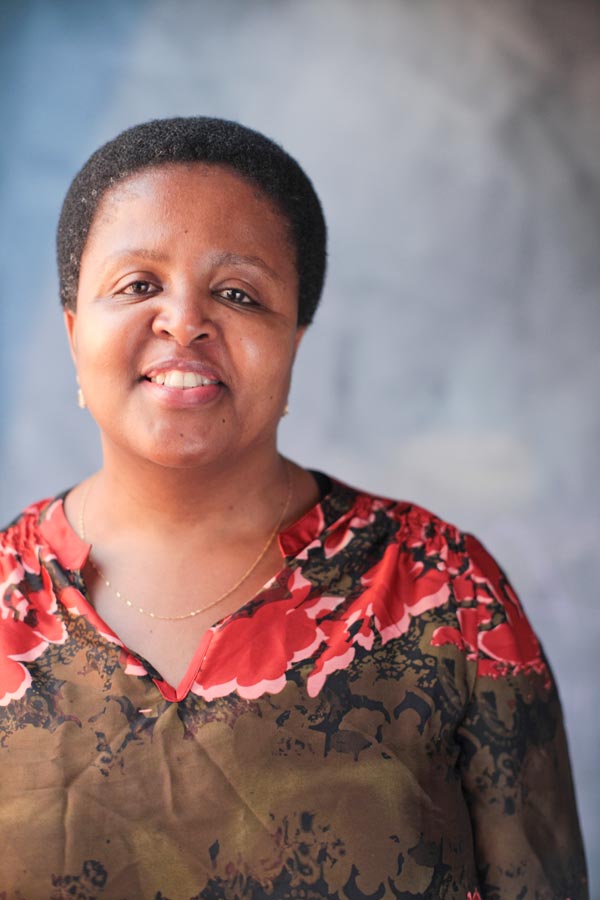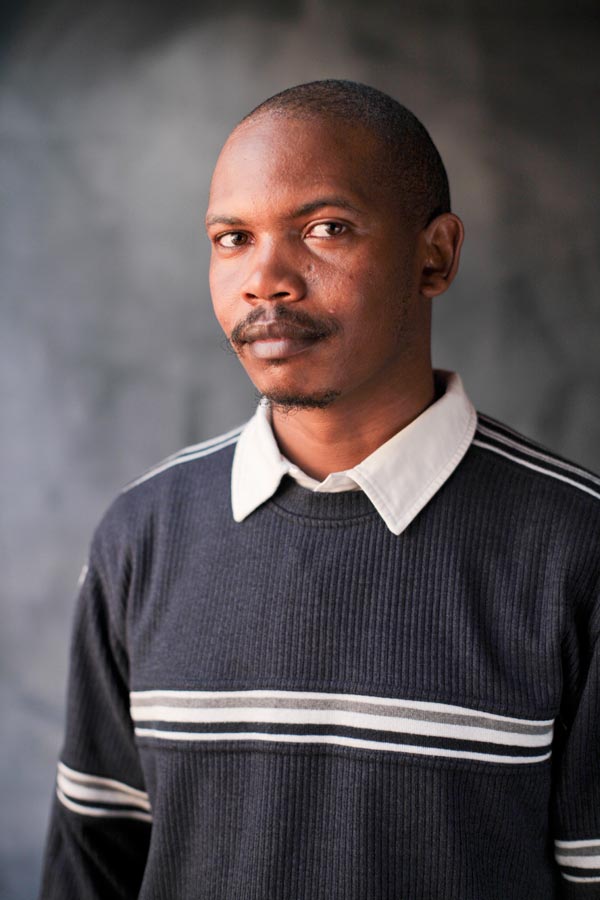Biofuels, wildlife preserves, a community’s access to clean water: These are the kinds of issues we think of as social and environmental positives, but these same seemingly good things can be wielded like clubs and injure Africa’s indigenous populations, who are often forced off their ancestral lands by governments and multinational corporations.
Thuli Brilliance Makama of Swaziland and Elifuraha Laltaika, a Maasai from Tanzania, are geographically far apart on the continent of Africa, with Laltaika in East Africa and Makama in the south, but they are fighting many of the same environmental and social justice battles against corporations and sometimes their own governments.
 |
| Thuli Makama. Photo by Trask Bedortha. |
Makama and Laltaika, together with a score of other public interest law attorneys from around the world, are meeting up in Eugene this week, through the Environmental Law Alliance Worldwide, and speaking about their battles at the Public Interest Environmental Law Conference. Laltaika is the executive director of the Association for Law and Advocacy for Pastoralists (ALAPA) in Tanzania and is at the University of Oregon on a Fulbright fellowship. Makama is the executive director of Yonge Nawe Environmental Action Group (Friends of Earth Swaziland) and has come to Oregon through ELAW. Both will be speaking at PIELC and Makama is a keynote speaker.
Swaziland
Thuli Makama isn’t just fighting corporations such as the Koch Brothers, she’s fighting her own government, which is ruled by a king in addition to the presence of a legislative and judicial system, and she’s fighting the people who say to her as a woman, “Where’s your father? Who is your husband?” she says.
Makama won the prestigious 2010 Goldman Environmental Prize for her work in Swaziland, where she has fought to ensure that ensure that local voices are heard when the country makes environmental decisions, such as when a minister of the environment illegally excluded environmental nongovernment organizations from the Management Board of the Swaziland Environment Authority. Makama and Yonge Nawe won the case.
Threats come not only from corporations like the U.S.-based Koch Brothers but also from entities that say they are there to protect the environment. One private company, Big Game Parks, owns or operates many of Swaziland’s preserves, and when it took over the land, it kicked off the people who had historically lived there and depended on the land. Those who hunt for sustenance are called poachers, while those who have the money can come in to trophy hunt.
“The evolution from preservation to sustainability is not happening fast enough,” Makama says. “Local people, their voices are somehow becoming drowned in the discussion at political levels and at legislative levels.” She says that “the scales are weighed against the man who does not have much money and who is not sophisticated enough to maneuver around” the way the government and courts are set up.
The corporations come in and promise “jobs,” she says, when the people are asked to let go of what they depend on for survival — access to land and water. “The question is why can someone go from being an owner to being an employee?”
Multinational corporations are given carte blanche, she says, and the government handles them with kid gloves. Makama says that the corporations are predatory and deliberately look for the weakest governments. They violate laws in Africa that they would never violate in their home countries, she says, and it’s difficult, if not impossible to pursue them.
She points to a coal mine in Swaziland that was run by the Koch Brothers that had frequent explosions; people died, she says, and now men sit at home, injured and unable to work, but the company pulled out, and said it was too “cash-strapped” to make contributions. “And we all know the Koch Brothers are not struggling,” Makama says.
Tanzania
While Elifuraha Laltaika may live in another region of Africa, Makama, sitting across from him at a table in Eugene, points out that his fight for environmental and social justice in Tanzania is “very similar; what is different is only the location.”
 |
| Elifuraha Laltaika. Photo by Trask Bedortha. |
She says across Africa, indigenous people are forced off the land not only for preserves, often under the guise of ecotourism, but also for fossil fuel extraction and for fuels whose purpose is to fight climate change — sugarcane and a crop called jatropha are planted to generate biofuels for Europe and ironically have to be shipped long distances to get there.
Laltaika says that the concept of indigenous rights is not one that has been widely used in Africa, but now it has become an important concept. Tanzania and many other African countries have not recognized the legal existence of indigenous peoples; this means people like the Maasai have lacked constitutional, legislative or administrative means to ensure that as indigenous peoples they have rights equal to that of other communities, he says.
Both Laltaika and Makama play down the backlash they themselves have faced for their work advocating for local populations and for the environment. By comparison to Maasai advocates before him, the backlash has been greatly reduced, Laltaika says. “I remember my relatives getting harassed, getting threats,” he says. It’s the communities themselves, and those people who try to stand up for themselves, that experience backlash from the corporations. They isolate them, target them personally, Makama says.
One company installed a water tap into a community without much access to clean water, but then prevented those who spoke up against the corporation from accessing the water. Another company targeted children by sponsoring a soccer team but then excluding the kids whose parents were seen as talking to “outsiders” — advocates who might be speaking out against the corporation. “The government sees foreign investors as a panacea for economic growth,” Laltaika says.
Hunting preserves are a problem in Tanzania, too, he says, with Maasai herders unable to roam to the lands they have historically retreated to in times of drought. Recreational safaris are not the problem, he says, but closed-off hunting preserves are. “The poor are poachers, but the others are ‘sport hunters,’” he says.
Big game hunters, high-ranking government officials, celebrities, Laltaika says, come to Tanzania to hunt lions, antelope, cheetahs and leopards. The royal family of the United Arab Emirates has installed an airstrip in a sanctuary “in total disregard of the livelihood of the Maasai cattle herders,” Laltaika says. These evictions of the Maasai off their lands result in cattle dying and conflicts over the land, he says. His nonprofit organization, ALAPA, gives legal assistance and helps protect the human rights of traditional cattle herders and hunter-gatherers. The group works in the courts, but also works to change the laws themselves to allow local populations a say in their own land and environment issues.
“Historically, a lot of harm has been by the government taking land from those vulnerable groups,” Laltaika says.
Elifuraha Laltaika and Thuli Makama speak at PIELC at 4 pm Feb. 28 on “Land, Climate Justice and Wildlife Conservation in Africa,” and at the 10:30 am March 3 film debut of Unfair Game: The Politics of Poaching. Makama gives a keynote speech at 12:30 pm March 1. See pielc.org for more panels and times.